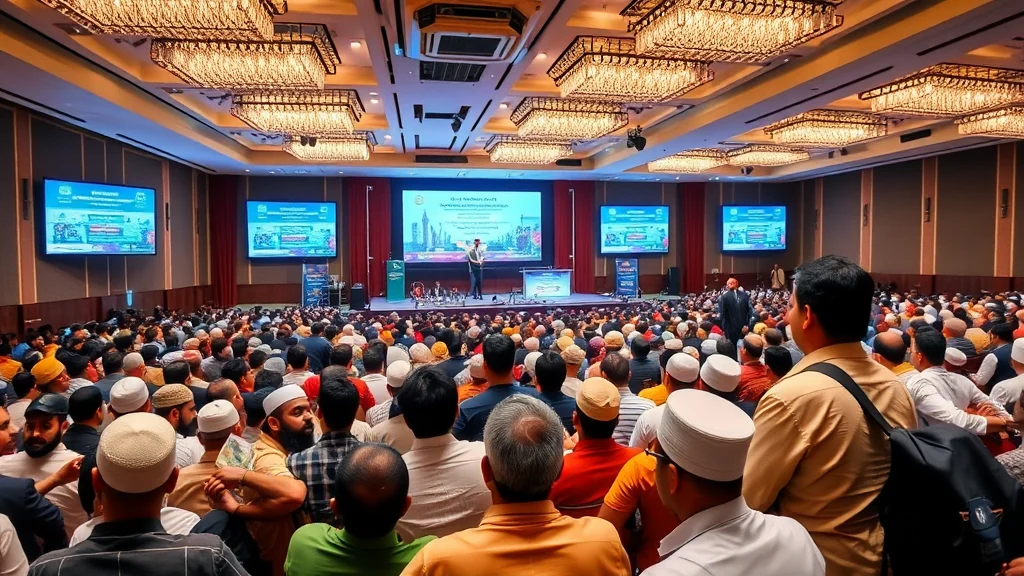Islamic Studies is a pivotal discipline within the field of social studies, characterized by distinct epistemological and theoretical foundations. The discipline holds exceptional significance due to its nature, thereby warranting paramount importance as a subject of scholarly inquiry. Within academia, this discipline encompasses the comprehensive study of Islam and Muslims, both in historical and contemporary contexts.
Read Concept NoteAcademic Summit
Islamic Studies in India: Revisiting and Reorienting

Concept Note
Islamic Studies is a pivotal discipline within the field of social studies, characterized by distinct epistemological and theoretical foundations. The discipline holds exceptional significance due to its nature, thereby warranting paramount importance as a subject of scholarly inquiry. Within academia, this discipline encompasses the comprehensive study of Islam and Muslims, both in historical and contemporary contexts. It extends to the analysis of Muslim/Islamic civilizations, culture, texts, history, jurisprudence, socio-cultural trends, political dynamics, and policy frameworks, among other key facets. Owing to the evolution in its methodological and conceptual variances throughout its development, Islamic Studies has consistently occupied an important role in the dissemination of scholarly knowledge.
India, as a location in South Asia, has long been celebrated for its profound contributions to Islamic Studies academically. Throughout history, India has stood as a beacon of intellectual prowess, particularly evident in its rich tradition of Quranic studies, Tafsir, and Hadith literature. However, contemporary research within Indian Islamic Studies is confronting numerous challenges, resulting in a dearth of innovative contributions beyond analytical and comparative research endeavours. It is widely acknowledged that the interdisciplinary approach to Islamic Studies has pushed the boundaries, creating new interventions and opportunities within the discipline. Moreover, at a theoretical level, recent transformations have seen the conceptual development of Islamic Studies as an analytical tool to read society and social dynamics.
Yet, the trajectory of research trends and topics in Indian Islamic Studies has diverged in an alternative direction. In terms of methodological contributions, the research and scholarly output originating from Indian academia has focused on mere gathering and compilation of existing facts and conducting comparative studies between scholars and ideologies, rather than introducing different methodological inquiries, especially in the anthropological and sociological study of Islam. To put it more precisely, the central universities in India that specialize in Islamic Studies tend to approach the subject in a somewhat peripheral way. The syllabi and research methods employed in these academic institutions often fall short of introducing diverse perspectives and frameworks.
Through this Summit, the Center for Critical Studies endeavours to address the prevailing issue of confined research trends and methodologies by undertaking a transformative approach and re-orienting Islamic Studies to a higher level. By briefly studying the prevailing research projects and theses in all research centres of Islamic Studies in central universities, this project, ‘Re-Orient,’ attempts to address the above-mentioned lacuna. Additionally, by looking forward to the long trajectory of Islamic Studies in India, this project aims to map the lack of interdisciplinary and multidisciplinary approaches. This Summit has been scheduled to familiarize participants with a wide array of methodologies essential for conducting research in Islamic Studies.
About Program
The Academic Summit on ‘Islamic Studies in India: Revisiting and Reorienting’ will comprehensively address key themes in the field of Islamic Studies through a series of focused sessions. The summit will explore the foundational aspects of Islamic Studies as an academic discipline, including the influence of Orientalism and the transformations in post-Orientalist research. Further discussions will contextualize Islamic Studies within India, examining its trajectories, methodological approaches, and recent developments in the Indian academic landscape.
As part of our focus on the integration of interdisciplinary perspectives, the summit will feature an in-depth exploration of how diverse disciplinary approaches can enrich the study of Islam. Topics will include the imperative of interdisciplinary and multidisciplinary approaches, sociological and anthropological insights, and theoretical frameworks such as intersectionality and subaltern studies. Additionally, the summit will address decolonial perspectives and explore how these frameworks can offer new insights into Islamic studies.
In the realm of Islamic jurisprudence and textual analysis, discussions will also cover the Maqasid al-Shariah (objectives of Islamic law), Nazm-e-Quran (thematic coherence in the Quran), Islamic liberation theology, and the critical examination of Islamic law and Shariah. These topics aim to provide a comprehensive understanding of Islamic legal and theological thought, highlighting their relevance and application in research on Islam.
Our Guests
The esteemed guests for the Academic Summit will include prominent scholars such as ;
Prof. Obaidullah Fahad (Aligarh Muslim University), Dr. Waris Mazhari (Jamia Hamdard University), Prof. Yusuf Amin (Aligarh Muslim University), Prof. Joseph E. B. Lumbard (Hamad Bin Khalifa University), Dr. P. C. Saidalavi (Shiv Nadar University), Dr. Irfanullah Farooqi (South Asian University), Dr. Danish Iqbal (Aligarh Muslim University), Dr. Tauseef Ahmad Parray (University of Kashmir), Abdullah Azzam (University of Oxford), Dr. Zulqarnain Haider (Al Jamia Islamia, Kerala), Dr. Mohammed Adhil (Jawaharlal Nehru University), Anees Ahamed (University of Calicut), Sadeed Azhar (New College, Chennai), and Thahir Jamal (Hyderabad Central University).
Additional distinguished scholars will be joining the lineup as the summit approaches, ensuring a rich and engaging academic discourse on Islamic studies.
